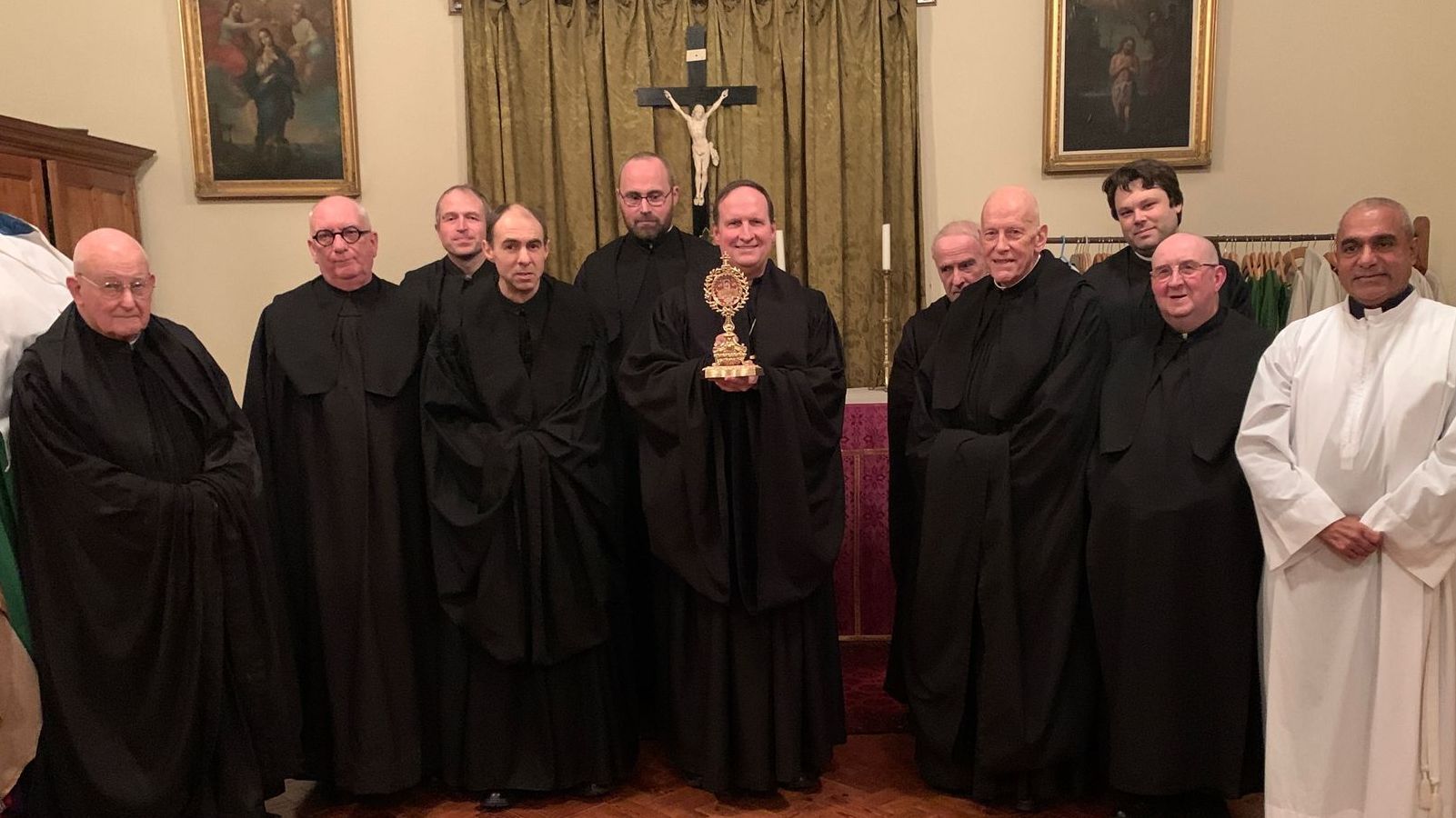Blessed Carlo Acutis - The Abbot's Homily

Homily for the Visit of the Relic of Blessed Carlo Acutis
Readings: Romans 8:26-30, Psalm 23, Matthew 11:25-30
I was in Assisi last May, and made my way to the Church of Santa Maria Maggiore, where the body of Blessed Carlo lies, not in flowing robes but in his familiar tracksuit and trainers, in a beautiful modern tomb. Assisi has always drawn pilgrims. St Francis spoke to the people of his day, and from the steady queues that make their way to Blessed Carlo, it is clear that he is speaks to ours. Why? Because he reminds us that holiness is possible at any age and in every circumstance of life—even in a world of computers, video games, and social media.
“The Lord is my shepherd, there is nothing I shall want.” It was a psalm that could have been written for Carlo. He was a teenager who placed his trust in the Lord who is a good shepherd. “You have prepared a banquet for me in the sight of my foes.” Indeed it was Carlo’s life work to speak of this banquet that we have been given, the Eucharist. His “Highway to heaven.” This was not just a neat phrase—he lived it. Even in his short life, he attended daily Mass, spent time in Eucharistic Adoration, and used his talents to bring others closer to Christ. Through his website documenting Eucharistic miracles he showed that the digital world could be a place of evangelization.
What a gift we are given in the Eucharist. Those who are not Catholic may wonder why we come to adore, get down on our knees before the small Host in a Monstrance. Well, it is simple. St Peter seeing the Risen Christ cried out: “It is the Lord.” It is his presence, his way of being with us. The bread and wine transformed at the Mass is food for the journey, Heavenly Manna on the way. The Eucharist is, as Pope John Paul II called it: “truly a glimpse of heaven appearing on earth… a glorious ray of the heavenly Jerusalem which pierces the clouds of our history and lights up our journey.” Ecclesia de Eucharistia 19. So in the Eucharist we have a foretaste of heaven.
Pope John Paul II used to describe the Mass as “Heaven on Earth,” explaining that what “we celebrate on Earth is a mysterious participation in the heavenly liturgy.” The Mass is indeed many things, but it is for us Christians it is the closest we can get to heaven. The curtain is pulled back, in the mystery of bread and wine heaven is revealed. And, to quote St Thomas Aquinas, in this holy banquet “a taste of future glory is given to us.” And so it was for Carlo, his “Highway to heaven.”
In his letter to the Romans St Paul reminds us that it is God who calls and transforms us. Carlo did not become holy on his own; he allowed God’s grace to shape him. He struggled, like any teenager, but he trusted in the Lord’s strength. Paul tells us: “In everything, God works for the good of those who love him.” Everything? How can all things—even suffering, disappointment, or failure—work for good? Surely, we have all experienced moments when life feels far from good.
But Paul does not say that everything is good. Rather, he tells us that God is at work in everything, bringing about His purposes, even in the most difficult situations. Carlo could understand that even his suffering
—his battle with leukemia—could show forth God’s purpose. In his illness he could say: “Sadness is looking at ourselves; happiness is looking toward God.” His faith helped him see that even his short life had a purpose in God’s plan. So offered up his sufferings for the good of the Pope and the Church.
Our Lord says today, “Come to me, all who labour and are heavy laden, and I will give you rest.” Like Carlo, let us find our rest and peace in the Lord, may we find joy in the midst of suffering.
As we approach this relic of this young man’s heart, may our hearts catch fire and burn with the same love of Christ that burnt so brightly in his. And may we bring that love to the world.
Blessed Carlo Acutis, pray for us! Amen.









